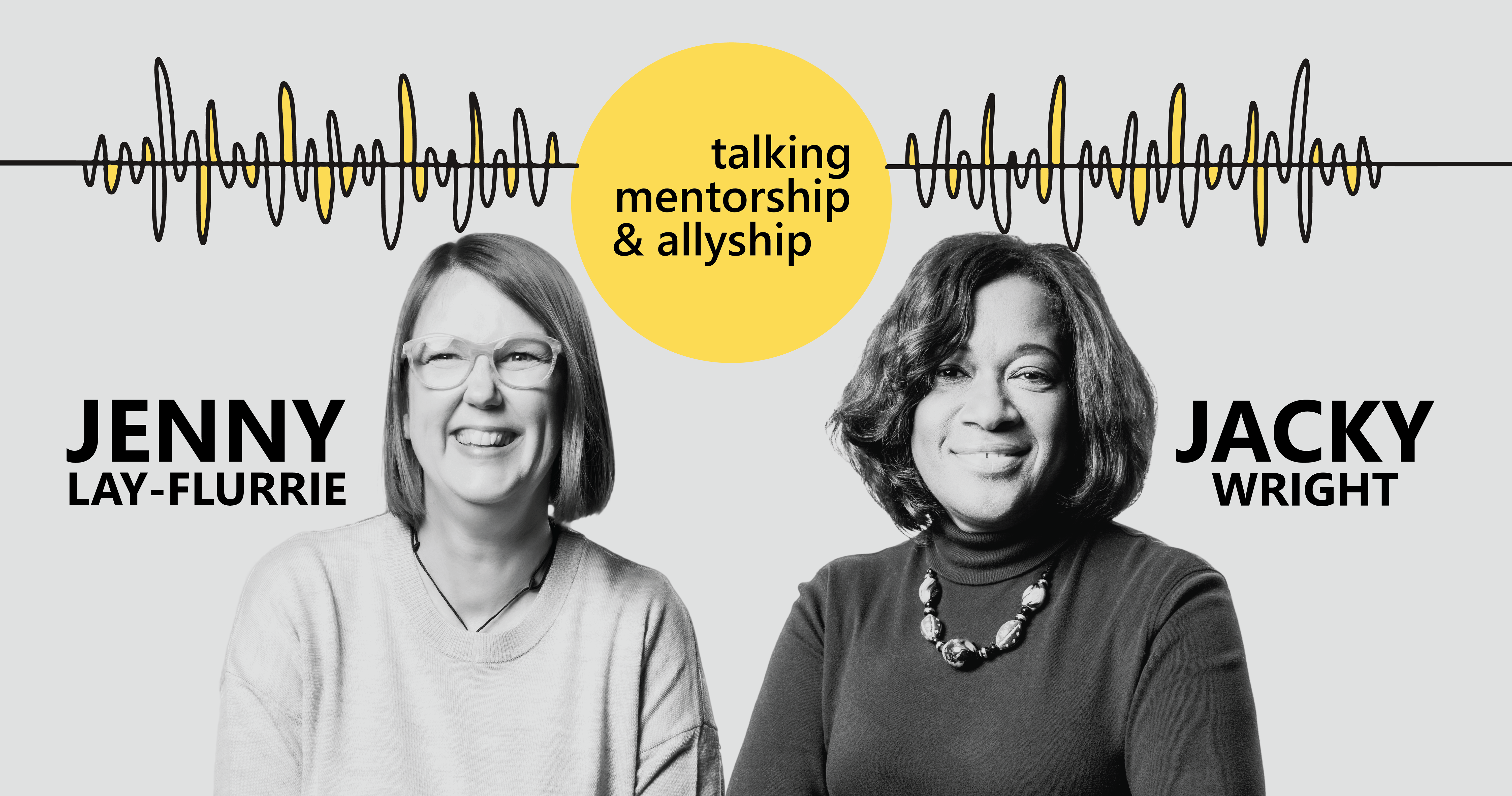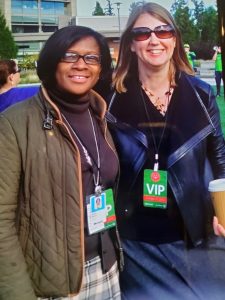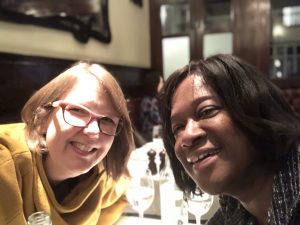This post has been republished via RSS; it originally appeared at: The Official Microsoft Blog.

Jenny Lay-Flurrie and Jacky Wright first met in 2012 while both were on a panel sponsored by the Women at Microsoft employee resource group (ERG). The connection was instant. Both Brits had moved to the U.S. to work with Microsoft – Jacky had just joined Microsoft as the vice president of IT Strategic Services, while Jenny had already been with Microsoft since 2006 and was moving into a new role with a dedicated focus on driving accessibility.
“After sharing the stage with Jacky, I remember my overwhelming thought was, ‘Oh, I need to spend more time with her!’” Jenny said. She reached out to Jacky afterward, had lunch, and asked Jacky to be her mentor. “She’s blunt, says it like it is, and is deeply passionate about diversity and inclusion – she’s a class act and a really good human.”

Their relationship grew after learning each other’s story and recognizing the shared challenges of pursuing a career. And each taught the other new perspectives that have changed the way they work and lead to this day.
Jacky describes mentorship as mutual learning. She said learning that Jenny – who is profoundly deaf but hadn’t shared the full extent of her deafness on joining the company – helped her realize the untapped potential of those in her teams who also may not feel comfortable raising the fact that they have a disability. “Gaining that insight helped me focus on how to help individuals be their authentic selves, across various identities,” said Jacky.
Jenny said their conversations helped her gain confidence and empowerment. “When we first met, I was chair of the Disability ERG, just beginning my journey to move into accessibility as my full-time role. I had a large bucket full of challenges and opportunities to meet the needs of customers and employees,” she explained. “Jacky’s coaching was direct and to the point: write it down and make the change happen. It’s advice that was instrumental on the path to the role I play today.”
Their reciprocal coaching has strengthened each of their commitments to lead and sponsor work that address systemic inequities. “I have felt empowered to be bolder in my leadership responsibilities to create inclusive environments, whether with my teams or with communities like the Blacks at Microsoft ERG,” said Jacky. “Creating, sponsoring and influencing has to be about initiating and creating lasting enduring change.”
With Jacky’s counsel and encouragement and the help of many, Jenny helped grow the Disability ERG to about two dozen groups around the world, ultimately taking the step to become chief accessibility officer, channeling feedback and ideas from employees and customers with disabilities to the right decision-makers for action – crucial to Microsoft’s goal to empower and build a durable culture of accessibility at Microsoft.
While mentorship is the guidance and coaching needed to help people in their decision making, confidence and overall career and personal aspirations, sponsorship is influencing and advocating for another when they are not in the room. The combination is critical for women, especially women with disabilities or who identify as members of other underrepresented communities.

“We’re given lots of advice, but ultimately stigma and biases can still prevent opportunity,” said Jenny. “People with disabilities are often inaccurately seen as less capable than non-disabled peers, regardless of their talent or expertise. Concerns about how an individual will be able to ‘do the job,’ or what accommodations will be needed, even fear of offending by using non-inclusive language can be barriers. Sponsorship is one of the vehicles that can ensure that the door is firmly open to talent.”
Deliberate efforts to make connections are even more important now when remote work situations have become more common, and there are fewer opportunities to fortuitously meet a potential mentor, sponsor or ally like Jacky and Jenny did.
Jacky offers this advice:
- Seek out communities where you would not normally be. Put yourself out there as someone who is offering to be a mentor. Those seeking mentors should find online communities based on personal or professional interests or common values. LinkedIn provides a great platform for that.
- Be courageous about asking for support. Learn to be vulnerable as that will help people understand what your specific needs are.
- All leaders in the organization should see themselves as advocates. Every moment can be a mentoring moment or a moment for allyship.
Jenny offers this:
- Don’t procrastinate, just send the mail!
- Do your research, identify the areas you think you can learn from your prospective mentor and sponsor and send your ask with those specifics.
- Be bold, state clearly what you’ve seen them do, what you want to learn from them and the doors you wanted opened.
- You might also get two meetings in and realize it’s not a fit. If so, move on. Also don’t be put off if they don’t reply immediately or say, “Not at this time.” Every human right now is busy!
- Be strong, be your own best self-advocate and be a sponge.
- Invest your time and remember to give in return; it is the gift that keeps on giving.
For more stories of women creating, innovating, leading and shaping society today visit Microsoft.com/WomensHistoryMonth.
Tune in to a recording of a conversation Jennie Lay-Flurrie and Jacky Wright had in April 2020 as part of the Women at Microsoft ERG Meet our Leaders series, or download the transcript to the conversation here.
The post Mutual empowerment through mentorship, sponsorship and allyship appeared first on The Official Microsoft Blog.
